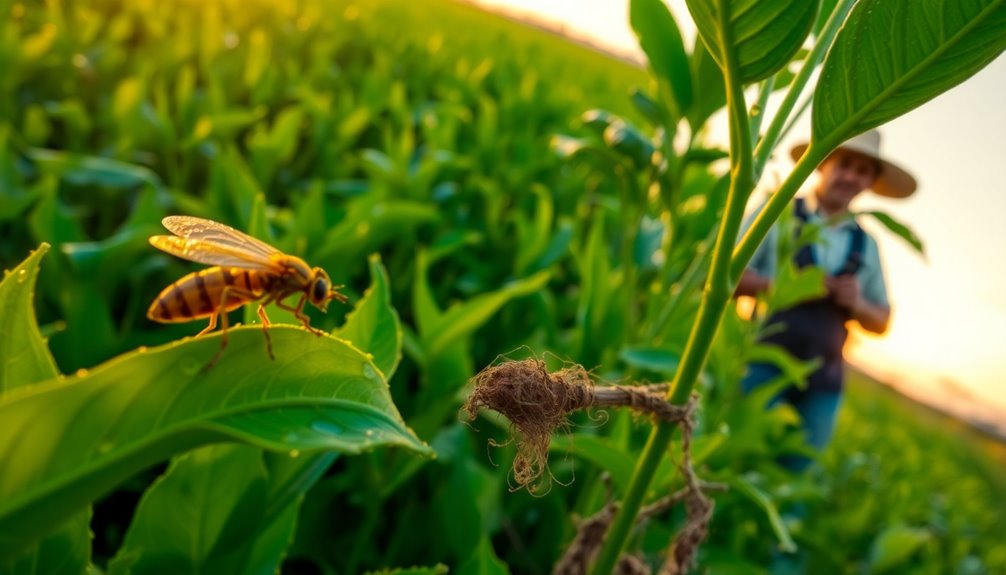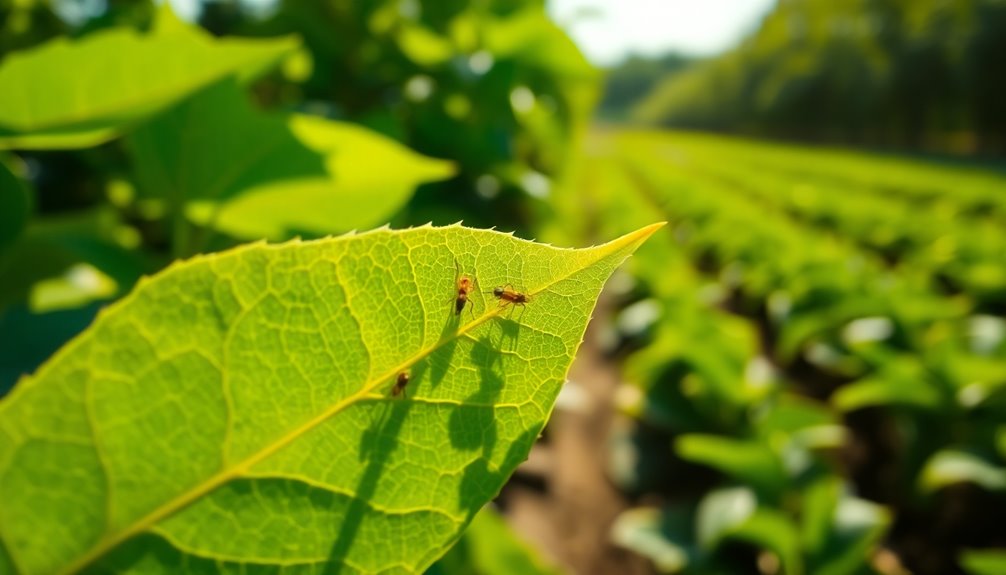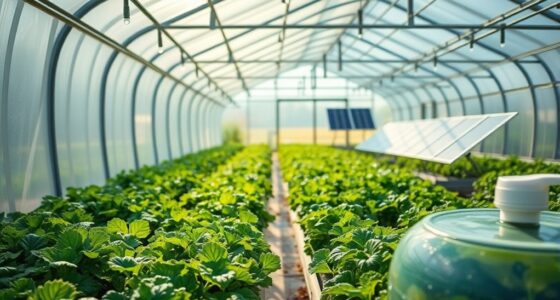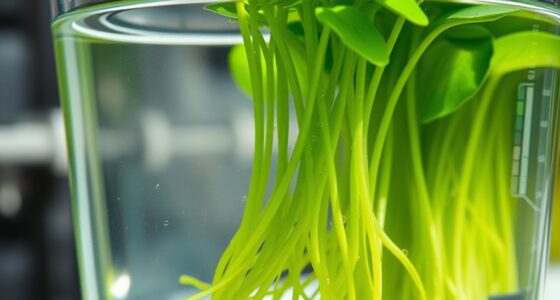New insights into plant-pest interactions can be game-changers for sustainable farming. By understanding these dynamics, you can implement more effective pest management strategies while minimizing reliance on chemicals. This not only enhances crop yields but also promotes soil health, aligning with sustainable practices like crop rotation and reduced tillage. As more farmers adopt these insights, you'll see a shift towards higher efficiency and environmental health. There's much more to uncover about these innovative approaches.
Key Takeaways
- Recent insights into plant-pest interactions can enhance integrated pest management, reducing reliance on chemical pesticides and promoting sustainability.
- Understanding pest behavior helps farmers implement targeted control measures, minimizing environmental impact while maintaining crop yields.
- Innovative pest management techniques can align with sustainable practices, improving overall farm efficiency and soil health.
- Education on new pest insights is crucial for farmers to adopt sustainable practices effectively and enhance productivity.
- Utilizing technology, such as AI and sensors, can optimize pest management strategies, fostering a transition toward sustainable farming methods.

As the demand for sustainable farming practices grows, many farmers realize that adopting these methods can significantly enhance both productivity and environmental health. Although an impressive 90% of farmers in the U.S. are aware of sustainable practices, the full-scale adoption remains low. You might find it surprising that less than 30% of farmland is currently managed under these principles.
However, there are promising opportunities to increase this adoption through education and innovative practices like biologicals and biochar.
Promoting education and innovative practices like biologicals and biochar can significantly boost sustainable farming adoption.
Crop rotation and reduced or no-till practices stand out as the most widely embraced methods, with 68% and 56% of farmers globally implementing them, respectively. These practices not only preserve soil health but also boost crop yields. While you may consider adopting variable-rate fertilizer applications, which about half of farmers use, controlled irrigation remains underutilized at just 35%. Many farmers implement sustainable practices on less than 30% of their acreage.
Specialty-crop farmers tend to lead the charge in integrating sustainable methods, including on-farm renewable energy, which currently only 13% of farmers utilize.
You might feel hesitant due to the initial costs associated with sustainable practices. However, many farmers expect a positive return on investment through increased yields and higher land values over time.
Technological advancements play a crucial role in this transition. AI-powered recommendations and precision farming techniques, involving drones and sensors, can help you make informed decisions based on field data, thereby increasing sustainability.
Sustainable practices also bring economic benefits by improving efficiency without harming the environment. As consumer demand for organic products continues to rise, the number of certified organic farms is increasing, reflecting a broader trend towards sustainability.
Frequently Asked Questions
What Are the Main Benefits of Sustainable Farming Practices?
Sustainable farming practices offer numerous benefits.
You'll conserve water with efficient irrigation and reduce waste by using natural inputs. Economically, these methods can boost your profits by lowering costs and enhancing crop yields.
Socially, you'll promote community well-being and equitable access to resources. Additionally, sustainable practices foster biodiversity, improve soil health, and support local ecosystems, creating a balanced environment that benefits not just you, but also the wider community and future generations.
How Can Farmers Implement These New Pest Insights Effectively?
To implement these new pest insights effectively, you can start by integrating companion planting with crops like mint that emit beneficial VOCs.
Use precision farming technologies to monitor pest populations and apply biostimulants to enhance plant resilience.
Rotate your crops regularly to reduce pest risks and adopt Integrated Pest Management (IPM) practices.
Collaborate with other farmers, sharing knowledge and strategies to make the most of these insights while promoting sustainable agriculture.
Are There Any Risks Associated With New Pest Management Strategies?
When you dive into new pest management strategies, you might uncover hidden risks lurking beneath the surface.
These methods, while innovative, can still lead to unintended consequences, like harming beneficial insects or creating dependencies on specific treatments.
You'll need to balance efficiency with ecological health, as some approaches may increase pest reservoirs or disrupt local ecosystems.
Staying vigilant and informed will help you navigate these complexities and minimize adverse effects on your farm.
What Role Do Consumers Play in Promoting Sustainable Agriculture?
You play a crucial role in promoting sustainable agriculture by choosing to support local farmers and purchasing organic products.
Your demand for environmentally friendly options encourages farmers to adopt sustainable practices.
By seeking out certifications like USDA Organic, you help drive market trends that favor eco-conscious farming.
Your choices not only reduce the carbon footprint but also foster biodiversity and water conservation, making a significant impact on the agricultural landscape.
How Does Climate Change Impact Plant-Pest Relationships?
Imagine a world where pests thrive unchecked, all because of climate change.
Rising temperatures speed up pest reproduction and expand their habitats, allowing them to invade new regions. Warmer winters let them survive longer, while increased CO2 weakens plant defenses, making them easier targets.
This shift in plant-pest relationships results in greater crop losses and food insecurity.
It's crucial for you to understand these dynamics to adapt your farming practices effectively.
Conclusion
Incredible breakthroughs in plant-pest insight are like the superhero cape farmers need to transform their fields into lush, pest-free paradises! Imagine walking through a garden of vibrant crops, where pests dare not tread, thanks to your newfound knowledge. With these insights, sustainable farming isn't just a dream; it's the golden ticket to a future where every bite of food bursts with flavor and health. So, get ready to revolutionize farming and unleash nature's true potential—one pest at a time!









